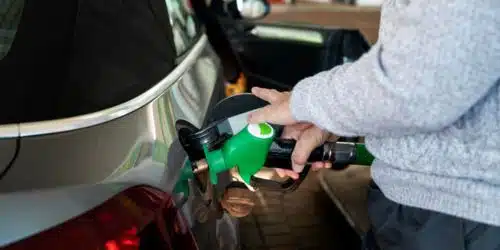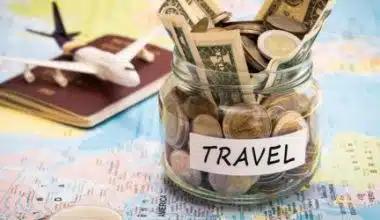Going on a road trip can be an exciting adventure, but it’s important to plan and budget for gas expenses instead of underestimating the cost and then finding out it is worth more than expected. In order to find out how much gas you will use and get tips on saving money on prices. You will have to calculate the amount of gas needed for a trip. Calculating the gas cost for a trip involves considering different associated factors and this article is directed towards sharing such factors, methods used in calculating the gas cost, benefits, and limitations encountered in the process.
How To Calculate Gas For A Trip
Gas cost calculators help compare vehicles, estimate annual fuel expenses, and explore potential savings with fuel-efficient options. To calculate the gas cost for a trip, you will need to consider a few factors, such as the distance of the trip, the fuel efficiency of your vehicle (measured in miles per gallon or kilometers per liter), and the price of gas.
Methods Used In Calculating Gas Cost
These methods can used to calculate the gas cost for a trip
#1. Method 1: Using the Miles Per Gallon (MPG) Formula
To calculate the total gas cost for your trip, first determine the distance in miles or kilometers, then calculate the fuel efficiency of your vehicle, divide the distance by the efficiency, and multiply by the current price. For example, your trip distance is 300 miles and your vehicle has a fuel efficiency of 30 miles per gallon. If the current price of gas is $3 per gallon, the calculation would be: Gas cost = (300 miles / 30 miles per gallon) * $3 per gallon = $30
#2. Method 2: Using the Consumption Rate Formula
To calculate the total gas cost for a trip, first determine the distance in miles or kilometers, then calculate the fuel efficiency of your vehicle, divide the distance by the fuel consumption rate, and multiply by the current price. For instance, suppose your trip is 300 miles long and your car uses 0.1 gallons of fuel every mile. The computation would be as follows if the price of gas is $3 per gallon right now: Gas cost = (300 miles * 0.1 gallons per mile) * $3 per gallon = $9
#3. Method 3: Using Online Fuel Cost Calculators
An online fuel cost calculator can be used to quickly calculate gas costs by entering the trip’s distance, vehicle fuel efficiency, and current gas price, making it a convenient and efficient method.
#4. Method 4: Using Mobile Apps
To calculate gas costs, download a gas cost calculator app from your mobile app store, install it, and enter trip distance, fuel efficiency, and gas price. The app helps track fuel expenses.
#5. Method 5: Considering Real-World Factors
Gas consumption depends on driving conditions, additional weight, fuel price variations, and alternative fuels. Factors like traffic congestion, road conditions, and speed can affect fuel consumption. Additional weight, fuel price variations, and alternative fuels like electricity require different calculations. Checking current prices and considering alternative fuels is crucial for accurate gas cost calculations.
Gas Consumption Mobile Apps
Gas consumption mobile apps are designed to help users track and manage their fuel consumption, estimate gas costs for trips, and provide additional features related to fuel efficiency. These mobile apps provide convenient ways to track and manage your gas consumption, monitor fuel efficiency, and find the best prices in your area.
Here are a few gas-consumption mobile apps:
#1. Fuelio
Fuelio is a popular gas consumption app available for both Android and iOS devices. It allows users to track their fuel consumption, mileage, and expenses. The app provides statistics, charts, trip logging, service reminders, and gas price tracking to help users improve their driving habits and fuel efficiency.
#2. GasBuddy
GasBuddy is an app that provides real-time gas prices, assisting users in finding nearby gas stations and calculating trip costs based on distance, vehicle type, and current prices.
#3. Drivvo
Drivvo is a popular app that tracks fuel consumption, expenses, and vehicle maintenance, providing detailed reports, statistics, reminders, and inspections for users.
#4. Fuelly
Fuelly is a mobile app that tracks vehicle mileage, gas consumption, service history, and service history. It allows users to log fuel fill-ups, calculate MPG, schedule maintenance, and optimize fuel consumption.
#5. aCar
aCar is a car management app that tracks gas consumption, expenses, maintenance, repairs, and service reminders. It provides detailed reports and statistics to help users make informed decisions and improve efficiency.
Online Fuel Cost Calculators
Online fuel cost calculators help users estimate fuel expenses for specific trips based on distance, fuel efficiency, and current gas prices. They aid in budgeting, planning road trips, and comparing vehicle costs, enabling informed decision-making.
These are examples of online fuel cost calculators:
#1. Fuel Cost Calculator by FuelEconomy.gov
Users can estimate fuel costs for both city and highway driving using this U.S. Department of Energy calculator. The calculator calculates the total fuel cost by comparing the vehicle’s fuel efficiency, trip distance, and average gas price.
#2. AAA Fuel Cost Calculator
AAA offers a fuel cost calculator on its website. The calculator estimates fuel costs for specific trips by comparing vehicle make, model, year, miles per gallon, starting and ending locations, distance, and average gas price in the user’s area.
#3. Edmunds.com Fuel Cost Calculator
Edmunds.com provides a fuel cost calculator as part of their car ownership cost calculator. The calculator calculates fuel cost by comparing the vehicle’s fuel efficiency with the current average gas price, based on user inputs.
#4. Vehicle Cost Calculator – Alternative Fuels Data Center
The Alternative Fuels Data Center’s Vehicle Cost Calculator accurately calculates fuel costs by considering vehicle efficiency and usage patterns, allowing users to input specific vehicle details.
#5. Fuel Economy – EPA
The EPA’s Fuel Economy website provides tools for comparing vehicle fuel efficiency, estimating annual costs, assessing environmental impact, enhancing fuel consumption, and cost management.
Benefits Of Calculating Gas For A Trip
Calculating gas costs for a trip provides several benefits and allows for better financial management and more informed decisions, ensuring a smoother and more enjoyable travel experience. Calculating gas for a trip can provide
#1. Budgeting
Calculating gas for a trip can help in budgeting and planning for the trip. By knowing the estimated fuel cost, travelers can plan their expenses accordingly and avoid overspending.
#2. Saves Money
By calculating gas for a trip, travelers can find ways to save money on gas. For example, they can choose a more fuel-efficient vehicle, plan the route to avoid traffic, and avoid unnecessary idling.
#3. Helps in Tax Deductions
For business-related trips, calculating gas expenses can help with tax deductions. Travelers can deduct the expenses related to gas, lodging, and meals if the trip is primarily for business purposes.
#4. Reduces Stress
Knowing the estimated fuel cost can reduce stress during the trip. Travelers can avoid the anxiety of running out of gas or not having enough money to pay for gas.
#5. Environmentally Friendly
By calculating gas for a trip, travelers can choose a more fuel-efficient vehicle and reduce their carbon footprint.
#6. Sharing Costs
If you are traveling with others and sharing expenses, calculating gas costs allows you to fairly divide the fuel expenses among all travelers. This can help avoid any misunderstandings or discrepancies in cost-sharing arrangements.
#7. Vehicle Comparison
By using a fuel cost calculator, travelers can compare the fuel efficiency of different vehicles and choose the one that is most cost-effective for their trip.
#8. Improved Vehicle Maintenance
Estimating gas costs encourages regular vehicle maintenance, such as oil changes, tire rotations, and air filter replacements, which improve fuel efficiency and reduce overall consumption.
#9. Safety Improvement
By planning the route and stops, travelers can improve their safety during the trip. They can avoid driving long distances without rest and in unsafe areas.
#10. Reducing Traffic Congestion
By planning the route and stops, travelers can avoid traffic congestion and reduce the time and fuel wasted in traffic
Limitations Of Calculating Gas For A Trip
Calculating gas for a trip does have a few potential disadvantages. When estimating the amount of petrol needed for a trip, it’s critical to keep these potential drawbacks in mind. While calculations can give an approximate idea, it’s best to have some flexibility and backup plans in case there are unforeseen circumstances that could alter fuel consumption throughout the journey.
Here are some limitations
#1. Inaccurate Calculations
Calculating gas for a trip is based on estimates and assumptions, such as average fuel consumption and the distance to be traveled. These estimates may not always be accurate, leading to discrepancies between the calculated gas needed and the actual amount required.
#2. Variations in Fuel Efficiency
Fuel efficiency can be affected by driving conditions, and calculating gas based on average consumption may not account for these variations, leading to overestimation or underestimation.
#3. Unplanned Stops or Detours
During a trip, unexpected stops or detours may be necessary, such as for restroom breaks, food, or sightseeing. These additional stops can affect the calculated gas needed, as they may require extra fuel consumption.
#4. Mechanical Issues or Delays
Mechanical issues or unexpected delays, such as traffic congestion or road closures, can disrupt the planned itinerary. These unanticipated events could lead to longer journey durations and more fuel use than was originally estimated.
#5. Fuel Price Fluctuations
Gasoline prices are unpredictable, causing unexpected costs and budgetary challenges if sudden increases in fuel prices occur, affecting trip calculations and regional variations.
#6. Inaccurate Fuel Gauge or Fuel Monitoring
The accuracy of the fuel gauge or monitoring system may have an impact on gas estimates, resulting in overestimation or underestimation that could result in gas shortages.
#7. Changing Weather Conditions
Weather conditions, like strong winds and extreme temperatures, can significantly impact fuel efficiency, leading to inaccurate gas calculations and unexpected expenses.
#8. Inadequate Vehicle Maintenance
Poor vehicle maintenance, including underinflated tires, dirty air filters, and mechanical issues, can reduce fuel efficiency and increase consumption, leading to underestimated fuel requirements during trips.
#9. Changes in Driving Habits
Calculating gas for a trip assumes a consistent driving style and habits. However, drivers may change their driving behavior during the trip, such as driving faster or more aggressively. These changes can affect fuel efficiency and lead to higher fuel consumption than initially estimated.
#10. Road Conditions
Road conditions can significantly impact fuel consumption during a trip, with rough or poorly maintained roads increasing rolling resistance and potentially requiring more fuel than expected.
Can Google Maps Estimate Gas Costs?
Yes, Google Maps can estimate gas costs for a trip. The Google Maps app shows fuel or energy-efficiency estimates on some routes based on your vehicle’s engine type. It takes into account factors like distance, fuel efficiency, and current gas prices. Google Maps also offers eco-friendly routing options that consider fuel and energy efficiency. While Google Maps can estimate gas costs, it does not directly calculate tolls but can indicate where tolls are located in the turn-by-turn directions. Overall, Google Maps provides useful tools for estimating gas costs and planning trips more efficiently.
Is There An App to Estimate Gas Costs For Travel?
Several apps are available to estimate gas costs for travel, including Fuel Economy Trip Calculator, GasBuddy Trip Cost Calculator, Roadtrip App, TollGuru Gas Cost Calculator, and Fuelio. These apps help plan trips, estimate fuel costs, and find ways to save money on fuel during travel. They also track mileage, gas consumption, and costs, allowing users to monitor their expenses and make informed decisions.
Is Waze’s Gas Price Accurate?
Waze’s gas prices are based on user-generated data, but their accuracy can vary. While some users find them reliable, others report inaccurate or outdated prices. To improve accuracy, users should report and update prices and double-check prices at the station before making decisions based on the app’s data.
Does The Waze App Show Gas Prices?
Yes, the Waze app does show gas prices. Waze provides gas price information that is crowdsourced from other drivers using the app. Users can search for gas stations nearby or along their route and view the prices reported by other drivers. Users are recommended to confirm prices at the station before making decisions and to update and report prices for accuracy, as gas prices on Waze are based on user-generated data.
How Do You Calculate Gas For A Trip, Mapquest?
To calculate gas costs using MapQuest, plan your route, use the Trip Cost Calculator, input your vehicle’s fuel efficiency information, and calculate the cost. The accuracy of the calculation depends on the provided information, such as vehicle efficiency and current gas prices. It’s advisable to verify gas station prices before making decisions based on the estimated costs provided by MapQuest, as prices can fluctuate.
How Does Google Track Gas Prices?
Google Maps tracks gas prices through various sources, including real-time reporting apps like GasBuddy, and gas station owners or fuel price data providers. The information is displayed on the platform, allowing users to view and compare prices. However, the availability and accuracy of gas prices might vary based on the location and trustworthy data sources, so it’s a good idea to double-check pricing at the station.
Conclusion
Calculating gas costs for trips offers benefits as detailed in the article, which helps plan expenses, avoid overspending, and ensure a fair division of expenses. Regular maintenance improves fuel efficiency. By planning routes and stops, travelers can also improve their safety and contribute to a cleaner environment. Calculating gas for a trip is a complex process with limitations like inaccurate calculations, driving conditions, unexpected stops, mechanical issues, price fluctuations, and weather changes. It is essential to have a backup plan in case of unexpected events that could alter fuel consumption. It is also crucial to have flexibility and backup plans in case of unforeseen circumstances that could alter fuel consumption throughout the journey.
- HOW TO CALCULATE AIRBNB FEES FOR HOST: All You Need To Know
- HOW MUCH IS A TRIP TO HAWAII?Detailed Guide
- 10 BEST CAR RENTAL APP IN USA 2023
- WHY ARE RENTAL CARS SO EXPENSIVE?
- THE ULTIMATE LIST OF SAN DIEGO HOTELS NEAR AIRPORT






